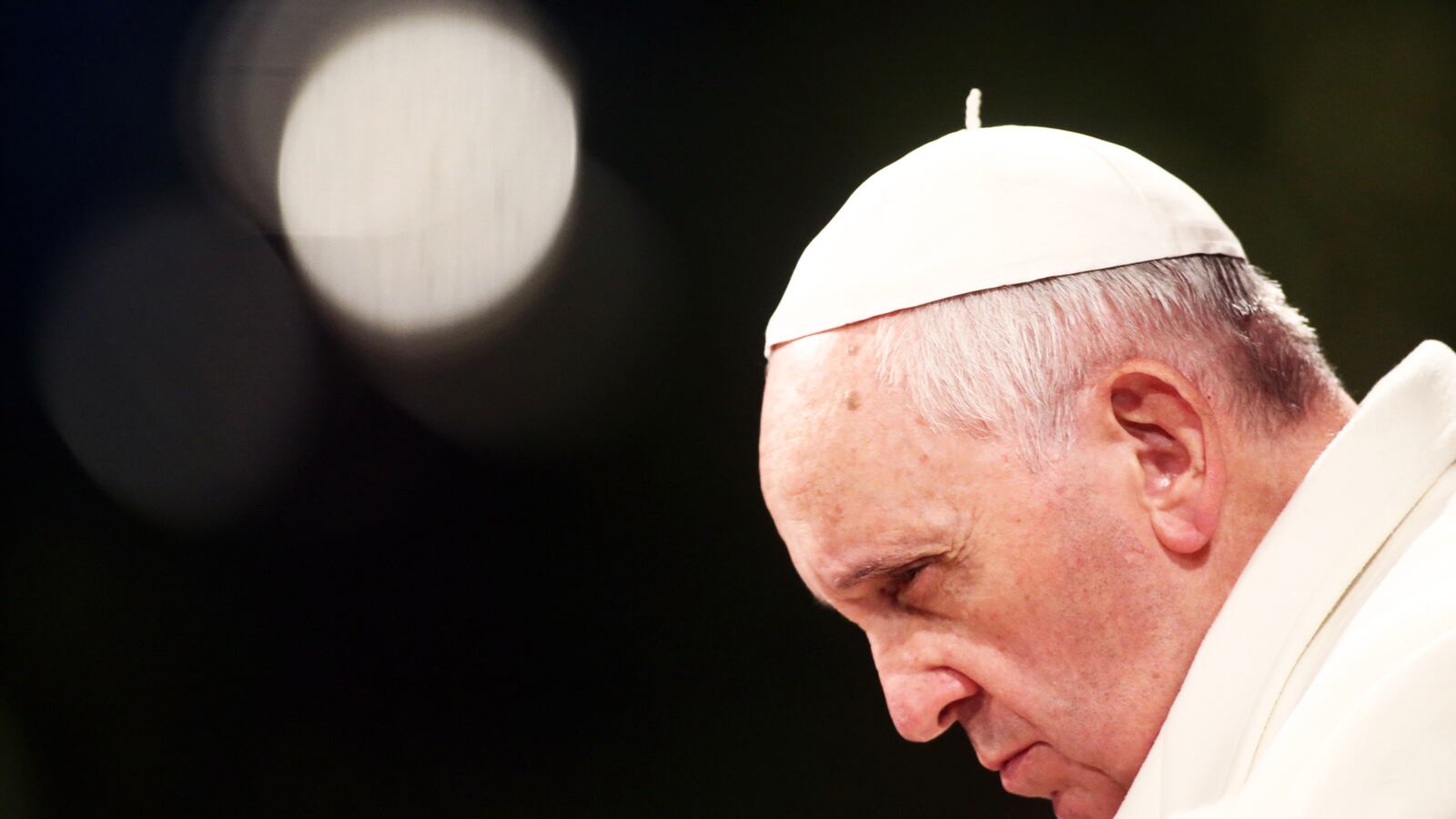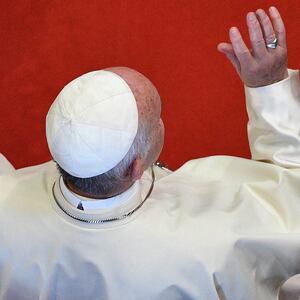ROME—There has perhaps never been a more critical moment in the history of the American Catholic Church to appear to be doing the right thing on clerical child sex abuse than this week as their leadership meets in Baltimore.
But in the hours before the U.S. Conference of Catholic Bishops, or USCCB, representing some 196 dioceses, gathered Monday morning, word came down from Rome that Pope Francis didn’t want the Americans to vote on two important items on their agenda—essentially ordering them to halt their vital work on reforms.
Instead, he wants any vote by individual national churches to take place after a Feb. 21-24, 2019, summit in Rome, where the global leaders of the church will be focused on its worldwide response to abuse.
But it means that this U.S. meeting, which was supposed to herald a change of course, is now just another meeting in which nothing concrete is accomplished.
Anne Barrett Doyle, the co-director of Bishops Accountability, a website that lists all cases of misconduct and coverups by clergy, called the Vatican’s move “truly incredible.”
“What we see here is the Vatican again trying to suppress even modest progress by the U.S. bishops,” she told reporters outside the conference, where her group is holding several events, including a press event where it called for all U.S. bishops to resign en masse. “We’re seeing where the problem lies, which is with the Vatican. The outcome of this meeting, at best, was going to be tepid and ineffectual, but now it’s actually going to be completely without substance.”
One item the Americans had hoped to enact is the adoption of a new code of conduct for U.S. bishops. The other deals with the creation of an investigative body into errant bishops led entirely by lay people, which is something victims of clerical sex abuse have been demanding.
Instead, all the American bishops can do now is just keep talking about the documents, which have passed through various committees and drafts ahead of the general assembly to be ready to take action on.
Cardinal Daniel DiNardo, the USCCB’s president, seemed shocked as he apologized for the change in the program when he opened the three-day general assembly, catching many of the attendees off-guard, according to reporters who were there. He said he was “disappointed” that the documents, which had been circulated in time for those attending the summit to study them before a discussion and vote, would not be implemented at this crucial moment for the church.
During his opening remarks, Cardinal Blase J. Cupich of Chicago interrupted DiNardo and spoke against the pope.
“It is clear that the Holy See is taking seriously the abuse crisis in the church,” he said, according to reports from the floor of the meeting, calling the February synod a potential “watershed moment” in church history, but insisted the USCCB needed to act immediately “for the good of the country.”
He called for the group to instead not waste their time and instead draft a resolution ballot of the two measures that they can vote on the minute the February meeting is over.
Almost immediately after DiNardo shared the news, the Vatican insider Twittersphere exploded with conspiracies. Some pondered whether or not Francis was trying to rein in the American church, lest they get ahead of the pope’s plans for a Rome-led response and call to action in February.
Others speculated that perhaps Francis didn’t trust the Americans, who have lately been the poster priests of bad behavior after a damning grand jury report this summer in Pennsylvania, showcasing more than 300 priests abusing more than 1,000 young victims, led the way to a steady stream of subsequent scandals across the country.
Francis had met with Monsignor Cristophe Pierre, the Vatican ambassador to the United States, just two days before the American bishops’ meeting, according to the pope’s official calendar, which some speculate could have led to the pope’s directive that the Americans should not be seen as leading the church’s global response to the crisis. Pierre, who is himself not American, but who addressed the USCCB summit Monday morning, told the group that the crisis in the American church was “both challenging and sobering.”
Even without the no-vote directive from Francis, the USCCB summit was already in trouble before it started. Several high-profile American bishops are themselves mired in accusations that they covered up clerical sex abuse. Most recently, Archbishop Charles Chaput was accused early Monday of knowingly ignoring accusations by a 19-year-old seminarian against Father Kent Drotar while he lead the Denver diocese before he moved to Philadelphia. Chaput, an archconservative who has said remarried Catholics should abstain from sex and that there is “no such thing as an LGBT Catholic,” sent Drotar to psychotherapy and then reinstated him in ministerial work.
The accuser, Stephen Szutenbach, told The Philadelphia Inquirer his story after he read that the Denver diocese bragged it had “no reported instances of abuse.” Because he was 19 at the time, his abuse was not considered a criminal offense, he says. “And I’m like OK, OK.… He said juvenile, but it’s mincing words,” Szutenbach told the paper. “And it’s another slap in the face, like my story didn’t count.”
Chaput has also been named by Francis to represent the USCCB at the February summit on abuse, despite allegations that he was part of the culture of coverup.
After DiNardo and Pierre spoke, the USCCB clergy spent the rest of the day in prayer, according to the official schedule, focusing on three main areas: accompanying abuse survivors, what bishops should do for their parishioners, and the role of the bishop as “minister of healing.”
The bishops will reconvene for a full day session on Tuesday morning.






